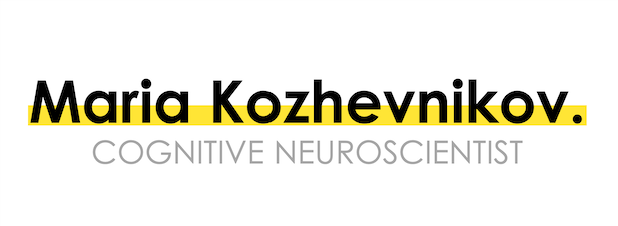

 The existence of optimal experiences, in which specific cognitive processes (e.g., attention, perception) are dramatically enhanced for limited durations has been suggested by phenomenological research (qualitative analysis of narrative data, Csikszentmihalyi, 1990; Maslow, 1999), but often overlooked in the domain of experimental psychology. Csikszentmihalyi termed such experiences as flow, and Maslow as peak experiences, and they defined them as unique, energized yet effortless, states of consciousness, characterized by a number of qualities, such as the merging of action and awareness (the awareness is entirely focused on the activity, and all distracting stimuli are ignored), the loss of awareness of oneself (as a social actor), intense concentration, and distorted sense of time.
The existence of optimal experiences, in which specific cognitive processes (e.g., attention, perception) are dramatically enhanced for limited durations has been suggested by phenomenological research (qualitative analysis of narrative data, Csikszentmihalyi, 1990; Maslow, 1999), but often overlooked in the domain of experimental psychology. Csikszentmihalyi termed such experiences as flow, and Maslow as peak experiences, and they defined them as unique, energized yet effortless, states of consciousness, characterized by a number of qualities, such as the merging of action and awareness (the awareness is entirely focused on the activity, and all distracting stimuli are ignored), the loss of awareness of oneself (as a social actor), intense concentration, and distorted sense of time.
 Our experimental findings support the existence of such optimal states (we termed then Enhanced Cognitive States) - states characterized by dramatic temporary improvements in visual selective (focused) attention, as measured by an attentional blink task and a number of tasks requiring visuospatial focused attention. We showed that these enhanced cognitive states can be elicited in a gaming context. In a number of experiments, we showed significant attentional improvements were exhibited by participants who played action video-game (First-Person Shooter), and whose skills matched the level of the video-game (optimal challenge), but not by those who were over challenged or under challenged. Furthermore, using EKG (electrocardiography) methodology, we showed that arousal, indicated by withdrawal from parasympathetic activity and activation of the sympathetic nervous system, is a necessary physiological condition underlying the enhanced cognitive states.
Our experimental findings support the existence of such optimal states (we termed then Enhanced Cognitive States) - states characterized by dramatic temporary improvements in visual selective (focused) attention, as measured by an attentional blink task and a number of tasks requiring visuospatial focused attention. We showed that these enhanced cognitive states can be elicited in a gaming context. In a number of experiments, we showed significant attentional improvements were exhibited by participants who played action video-game (First-Person Shooter), and whose skills matched the level of the video-game (optimal challenge), but not by those who were over challenged or under challenged. Furthermore, using EKG (electrocardiography) methodology, we showed that arousal, indicated by withdrawal from parasympathetic activity and activation of the sympathetic nervous system, is a necessary physiological condition underlying the enhanced cognitive states.
 In other experiments, we showed that participants who played high-arousal collaborative physical puzzle game (such as Escape Rooms, played in either a virtual reality environment or realistic setting, in which a team of players solve a series of puzzles meeting certain criteria) exhibited similar enhanced cognitive states to the group of FPS video-gamers who were optimally challenged. In contrast, participants who played a low-arousal computerized puzzle game, such as Tetris, did not exhibit such attentional enhancements, despite their active engagement in the game.
In other experiments, we showed that participants who played high-arousal collaborative physical puzzle game (such as Escape Rooms, played in either a virtual reality environment or realistic setting, in which a team of players solve a series of puzzles meeting certain criteria) exhibited similar enhanced cognitive states to the group of FPS video-gamers who were optimally challenged. In contrast, participants who played a low-arousal computerized puzzle game, such as Tetris, did not exhibit such attentional enhancements, despite their active engagement in the game.
Overall, our findings suggest that enhanced cognitive states are a universal phenomenon, which demands focusing one’s attention on a single task from the egocentric perspective, and ought to involve an adventurous “adrenaline-rush” type of activity. Furthermore, an underlying physiological mechanism of ECSs is parasympathetic nervous system (PSNS) withdrawal associated arousal. Specifically, the gaming dimensions leading to greater PSNS withdrawal associated arousal result in greater improvements on the attentional blink task during ECSs. These findings suggest that individuals can transcend what was hitherto assumed to be a limitation of human cognition, granting new prospects for eliciting exceptional human performance.
Relevant research articles: